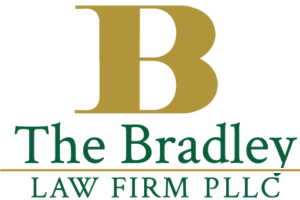Probate & Estate Administration
During the stressful and hectic period following the death of a loved one, it is often frustrating for families to deal with the legal issues involved in settling the descendant’s affairs. Attorney J. Anthony Bradley will help family members or Attorneys navigate the details of Probate proceedings in Tennessee, Mississippi, Arkansas, and Kentucky.
In all of these states, Probate Law requires that a lawyer handle the process of arranging for the administration of the estate of the deceased. The process can be fairly simple, if the Probate Court accepts a Will as valid, there is no contest to that Will, and the Executor or Executrix named in the Will is willing and able to take on the responsibility.
If there is no valid Will, the person who died was “intestate” and the Probate rules direct the court to appoint an Administrator to handle the estate.
In either situation, there are a number of responsibilities, including:
-
- Identification and notification of all potential heirs and creditors
- Publication of legally required notices
- Management of assets and real estate
- Inform the Executor about the estate administration process
- Advise the Executor about his/her duties and prepare and file appropriate court documents
- Prepare and file appropriate gift, inheritance, and income tax returns and insure that tax payments are made on a timely basis
- Minimize taxes and insure the proper disposition of estate assets
- Resolve family disputes
- Arranging for the transfer of assets to heirs and creditors
- Analyze the interrelation of Estate, Individual Income and Fiduciary Income Taxes
- Implement estate planning for beneficiaries, such as a surviving spouse
Contact The Bradley Law Firm, PLLC for all of your Probate Administration and Estate Planning needs.
Schedule a Consultation Today
Click Below to View Frequently Asked Questions
Unfortunately, there is an increasing need to litigate matters in the world of trusts and estates so that a “just result” can be achieved. The trust and estate laws can be complex and there a myriad of laws, requirements and obligations involving family addressing estate matters.
The first area to consider are Will Contests in the context of a probate proceeding. When a loved one changes his or her Will (especially near in time to the decedent’s demise), one may call into question what were the true intentions of one’s loved one. Issues can arise when a family member has been removed as a beneficiary of the Will (or limited provisions have been made for said beneficiary).
A Last Will and Testament can be voided due to undue influence, lack of capacity or the improper execution of the Will. In such a situation, the disinherited beneficiary may be able to have the court void the Will and enforce a prior Will or have the estate pass by intestacy which can be to the disinherited beneficiary’s benefit.
Will provisions may be challenged due to a lack of clarity by a reformation proceeding which can make sure the wishes of the decedent are carried out as intended.
Sometimes, there is an issue regarding the Executor who fails to do his job properly. A removal proceeding can be brought to have the Executor removed and replaced. There are situations when the nominated Executor should not be appointed in the first place and his or her appointment can be challenged.
Other times, a beneficiary may be left out in the dark by the Executor during the estate administration. In such case, one can seek an accounting from the Executor as to the collection of the estate assets and income and the payment of estate expenses and distributions to the beneficiaries. The Executor has a duty to properly manage and invest the estate assets and a duty to file estate and income tax returns, when required by law.
Other times, an estate may have been reduced or eliminated by gifting prior to death or by retitling assets and/or beneficiary designations. Such actions, especially when undertaken by an agent under a Durable Power of Attorney or on one’s death bed, may thwart the testator’s real intentions as to who should benefit from his or her estate and in what manner. A turn over proceeding can be commenced to have the assets returned to the estate.
Similar to the issues addressed under Wills, Trusts present similar issues and are subject to the same scrutiny. A trust may be challenged if not properly executed or executed under undue influence or at a time when one lacks capacity.
Trustees are charged with the carrying out of the trust provisions. Beneficiaries have a right to receive the trust assets as provided for in the trust. Trustees are fiduciaries and have a responsibility to the beneficiary for the proper administration of the Trust which includes proper management and investment of the trust assets.
When issues arise regarding the Trustee’s actions, beneficiaries can seek the services of an experienced trust and estate litigator to seek redress in the court.
